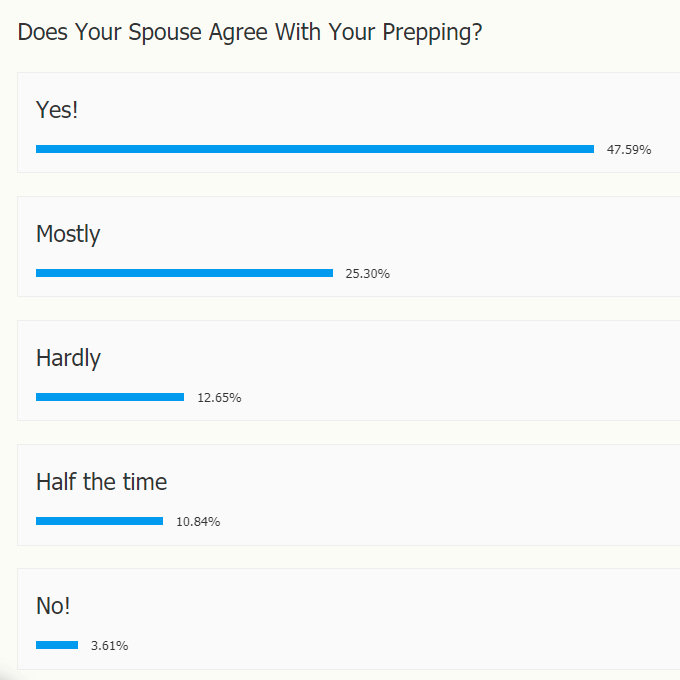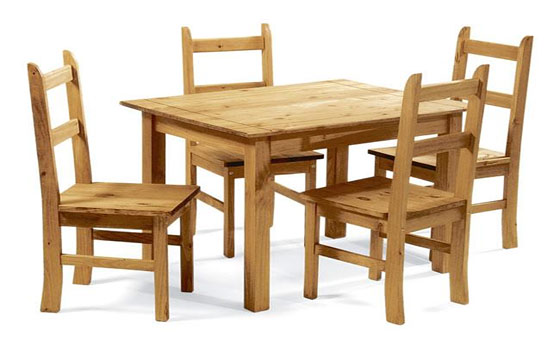Preparedness Meetings With The Spouse
Preparedness meetings. I believe that it’s a great idea to meet once in awhile with your spouse – about your overall preparedness. This presumes that your spouse is ‘on-board’ with the notion of general preparedness…
Lets talk about the advantages of having occasional preparedness meetings.
By the way, take notes! Review the notes next time. Make action items.
A meeting is, just a meeting – a joining of the minds, opinions, and thoughts about a given subject. You can take it as deep as you want, or simply keep it light.
One advantage of a preparedness meeting is that it keeps verbal communication going about your own “state of the union”, so to speak. The state of your household (which may include many subtopics).
Mrs.J and I have occasional meetings about our preparedness, seasonal goals, finances, “to-do lists”, etc.. I must say that it really helps. Bouncing ideas or thoughts off another critical-thinking person can reveal holes or flaws – things you might not have thought of. It helps solidify the right path.
Preparedness Meeting Topics
So, what are you going to talk about? Well, I would hit the high-level categories first. The 30,000 foot view. The sky’s the limit here, but I prefer to keep it simple so as not to take too long (otherwise you both might be discouraged to meet about this next time).
I hit the big topics first. Then I go back and drill down a bit if necessary. Sometimes we spend more time on a particular thing or plan. That’s okay – whatever works… Everyone’s risk-tolerance thresholds are different. We’re all in our own unique situations.
A few topic thoughts:
Water. Food. Shelter. Security.
Discuss the ’30-thousand foot view’ of current events at a global / national / state / local level with regards to potential risks or dangers out there. Some may have eventual impact on your lives in the near or distant future. Consider those impacts.
Discuss ‘what if’ scenarios for various hypothetical situations which would shake up your “normal”. How you would cope with each – given your current situation (whatever that is)? Do you need to take actions to become better prepared for any of those events?
Your wish-list of the things / projects / goals that you would like to purchase, build, research, learn, or accomplish. Then prioritize based on your instinct of what needs to be done first, second, etc.. given any constraints.
Talk about your current food storage. Evaluate what you currently have. Is it enough? Any holes? How long will it sustain your household. Diversified enough? Variety? Shelf life. Food rotation. Are you actually consuming what you’ve stocked up on? (FIFO). Etc..
Discuss your home security and personal security situations. Based on where you live, its demographic, may require adjustments depending on a hypothetical level of social collapse. Run through various scenarios and imagine how you would stay secure. Look for gaps. How might you shore up your home security?
Energy disruption (grid). Coping without electricity. Got what you need? Think of the season when it may happen (unique requirements?).
Your survival kitchen without the grid. Got the “tools’ that you would need?
Gardening and Preserving progress?
Review your financial situation. It’s different for everyone, but the topic is very important!
These are just a few ideas to get you thinking. There are so many things that you could discuss. But the point is that it’s a good idea to do it – because it helps keep you on track and provides motivation to accomplish your preparedness goals.
What about your ideas for discussion points during a preparedness meeting?
“Does your spouse agree with your prepping?”
We ran a Poll here on the blog and asked readers, “Does your spouse agree with your prepping?” After a few hundred responses, the results are in…
Yes, nearly 75% of spouses are on board with prepping, mostly, or all the way.


